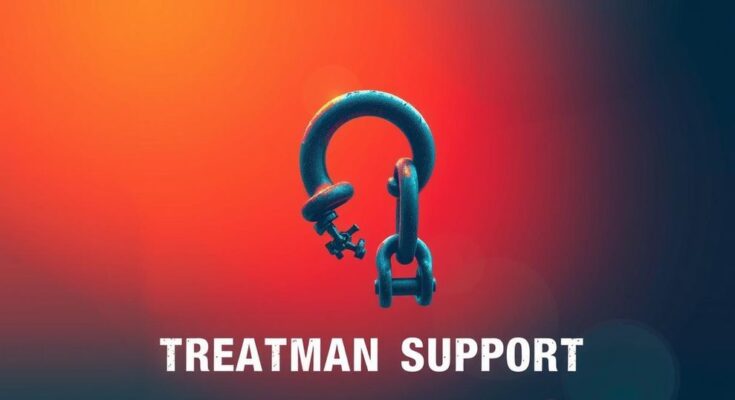The cut in U.S. aid is worsening Nigeria’s tuberculosis funding crisis, risking vital case-finding and treatment services. With a required $404 million for 2025, the Global Fund’s allocation is insufficient. Despite managing to identify over 400,000 TB cases, significant challenges persist, emphasizing the urgent need for increased domestic funding to sustain TB efforts amid declining donor support.
The recent reduction in U.S. aid is exacerbating Nigeria’s existing funding deficit for tuberculosis (TB) care, posing a significant threat to critical case-finding and treatment operations. The country faces a requirement of $404 million for TB services in 2025, and without alternative financing, the TB programme may experience severe disruptions.
From January to March 2023 alone, Nigeria has encountered a $5 million funding shortfall as a direct consequence of U.S. government policy changes. The Global Fund, a primary partner in the TB programme, has earmarked only $89 million for 2025, diminishing to a mere $16 million in 2026, thus raising concerns about the sustainability of the programme.
Nigeria intended to identify and initiate treatment for 499,000 TB patients in 2024; however, only 418,000 individuals have been treated thus far, suggesting that resources allocated for 2025 have already been depleted. This situation raises alarm over potential drug shortages as some medications intended for 2025 have already been consumed.
Despite these challenges, Mr. Tajudeen Ibrahim, the Executive Secretary of the Country Coordinating Mechanism (CCM) of the Global Fund, mentioned that there is currently no immediate drug crisis. He noted that the U.S. aid reduction specifically affects TB case-finding in 18 states where U.S. support coexists with Global Fund initiatives. In contrast, TB services in other states continue to be adequately funded by the Global Fund.
International donors significantly support Nigeria’s fight against TB, with domestic funding remaining persistently low, between 6 percent and 8 percent from 2018 to 2023. Over that same period, the support from international sources varied from 16 percent to 32 percent, and funding shortfalls reached as high as 70 percent in 2023.
According to the Federal Ministry of Health, approximately 50 percent of Nigeria’s healthcare facilities offer TB treatment, yet only 48 percent of local government areas have access to GeneXpert MTB/RIF machines for accurate TB diagnosis. TB constitutes a substantial public health threat both domestically and internationally, as evidenced by Nigeria’s ranking as the leading nation in Africa and sixth globally for TB burden in the 2024 WHO Global TB Report.
Notably, Nigeria accounted for 20 percent of Africa’s TB burden and 18 percent of TB-related fatalities in 2023, with 71,000 deaths attributed to the disease. Nonetheless, Dr. Godwin Ntadom from the Federal Ministry of Health reported a record high in TB notifications in 2024, with over 400,000 cases identified, equating to a treatment coverage of 79 percent.
Additionally, TB detection within the pediatric population has markedly improved, surging from 8,293 cases in 2018 to 43,000 in 2024. Nonetheless, Dr. Ntadom emphasized the continuing issue of undiagnosed TB cases contributing to community transmission, while drug-resistant TB remains a critical challenge due to low enrollment rates into treatment programs.
World Tuberculosis Day (WTD), celebrated on March 24, advocates awareness, progress monitoring, resource mobilization, and commitment reinforcement to eradicate TB. This year’s focus, “YES! WE CAN END TB – COMMIT. INVEST. DELIVER,” aligns with the Federal Ministry of Health’s strategic aim to involve all sectors in combating TB.
Dr. Ntadom reiterated the Federal Government’s commitment to meet WHO’s targets for ending TB and underscored the acute necessity for heightened domestic investment in TB services. Recognizing the vital need for domestic funding amidst falling donor assistance, the Stop TB Partnership Nigeria highlighted the importance of prioritizing local investments to advance TB eradication efforts.
Dr. Queen Ogbuji-Ladipo, Acting Board Chair of Stop TB Partnership Nigeria, emphasized that the nation’s TB response is at a pivotal moment as donor support diminishes. She called upon policymakers, private entities, and civil society organizations to intensify advocacy efforts toward increasing domestic resources for sustaining TB prevention and treatment services.
In summary, the reduction of U.S. aid poses a significant threat to Nigeria’s tuberculosis treatment efforts, leading to alarming funding gaps and potential drug shortages. While international funding remains crucial, Nigeria must recognize the pressing need for increased domestic investment to sustain and enhance its TB response. While recent achievements in TB detection demonstrate progress, the ongoing challenges underscore the necessity for collaborative efforts among stakeholders to effectively combat this public health threat.
Original Source: leadership.ng




